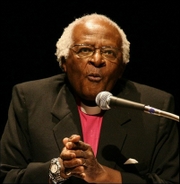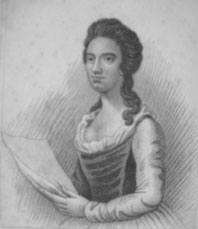Churches back plan to unite under Pope
Ruth Gledhill, Religion Correspondent
Radical proposals to reunite Anglicans with the Roman Catholic Church under the leadership of the Pope are to be published this year, The Times has learnt.
The proposals have been agreed by senior bishops of both churches.
In a 42-page statement prepared by an international commission of both churches, Anglicans and Roman Catholics are urged to explore how they might reunite under the Pope.
The statement, leaked to The Times, is being considered by the Vatican, where Catholic bishops are preparing a formal response.
BackgroundIt comes as the archbishops who lead the 38 provinces of the Anglican Communion meet in Dar es Salaam, Tanzania, in an attempt to avoid schism over gay ordination and other liberal doctrines that have taken hold in parts of the Western Church.
The 36 primates at the gathering will be aware that the Pope, while still a cardinal, sent a message of support to the orthodox wing of the Episcopal Church of the US as it struggled to cope with the fallout after the ordination of the gay bishop Gene Robinson.
Were this week’s discussions to lead to a split between liberals and conservatives, many of the former objections in Rome to a reunion with Anglican conservatives would disappear. Many of those Anglicans who object most strongly to gay ordination also oppose the ordination of women priests.
Rome has already shown itself willing to be flexible on the subject of celibacywhen it received dozens of married priests from the Church of England into the Catholic priesthood after they left over the issue of women’s ordination.
There are about 78 million Anglicans, compared with a billion Roman Catholics, worldwide. In England and Wales, the Catholic Church is set to overtake Anglicanism as the predominant Christian denomination for the first time since the Reformation, thanks to immigration from Catholic countries.
As the Anglicans’ squabbles over the fundamentals of Christian doctrine continue — with seven of the conservative primates twice refusing to share Communion with the other Anglican leaders at their meeting in Tanzania — the Church’s credibility is being increasingly undermined in a world that is looking for strong witness from its international religious leaders.
The Anglicans will attempt to resolve their differences today by publishing a new Anglican Covenant, an attempt to provide a doctrinal statement under which they can unite.
But many fear that the divisions have gone too far to be bridged and that, if they cannot even share Communion with each other, there is little hope that they will agree on a statement of common doctrine.
The latest Anglican-Catholic report could hardly come at a more sensitive time. It has been drawn up by the International Anglican-Roman Catholic Commission for Unity and Mission, which is chaired by the Right Rev David Beetge, an Anglican bishop from South Africa, and the Most Rev John Bathersby, the Catholic Archbishop of Brisbane, Australia.
The commission was set up in 2000 by the former Archbishop of Canterbury, Lord Carey of Clifton, and Cardinal Edward Cassidy, then head of the Vatican’s Council for Christian Unity. Its aim was to find a way of moving towards unity through “common life and mission”.
The document leaked to The Times is the commission’s first statement, Growing Together in Unity and Mission. The report acknowledges the “imperfect communion” between the two churches but says that there is enough common ground to make its “call for action” about the Pope and other issues.
In one significant passage the report notes: “The Roman Catholic Church teaches that the ministry of the Bishop of Rome [the Pope] as universal primate is in accordance with Christ’s will for the Church and an essential element of maintaining it in unity and truth.” Anglicans rejected the Bishop of Rome as universal primate in the 16th century. Today, however, some Anglicans are beginning to see the potential value of a ministry of universal primacy, which would be exercised by the Bishop of Rome, as a sign and focus of unity within a reunited Church.
In another paragraph the report goes even further: “We urge Anglicans and Roman Catholics to explore together how the ministry of the Bishop of Rome might be offered and received in order to assist our Communions to grow towards full, ecclesial communion.”
Other recommendations include inviting lay and ordained members of both denominations to attend each other’s synodical and collegial gatherings and conferences. Anglican bishops could be invited to accompany Catholic ones on visits to Rome.
The report adds that special “protocols” should also be drawn up to handle the movement of clergy from one Church to the other. Other proposals include common teaching resources for children in Sunday schools and attendance at each other’s services, pilgrimages and processions.
Anglicans are also urged to begin praying for the Pope during the intercessionary prayers in church services, and Catholics are asked also to pray publicly for the Archbishop of Canterbury.
In today’s Anglican Church, it is unlikely that a majority of parishioners would wish to heal the centuries-old rift and return to Rome.
However, the stance of the Archbishop of Canterbury over the present dispute dividing his Church gives an indication of how priorities could be changing in light of the gospel imperative towards church unity.
Dr Rowan Williams, who as Primate of the Church of England is its “focus for unity”, has in the past supported a liberal interpretation of Scripture on the gay issue. But he has made it clear that church unity must come before provincial autonomy. A logical extension of that, once this crisis is overcome either by agreement or schism, would be to seek reunion with the Church of England's own mother Church.
Is it possible that this unity between the Catholics and Anglicans could help ease the rift between the Catholics and certain Protestant denominations (Southern Baptist to name one, also it is the only one I can think of right now). Now as my hardcore fundamentalist friends they will think "God has left the building" if such a thing ever comes to pass. Personally I would for the Catholic and Protestant to come together and see each other in the light and communion of Christ, which we called to be the body of Christ and one Baptism. If it seems that I am being harsh with Protestantism I kinda am. Martin Luther, John Calvin or for that matter anybody in religious circles is ever 100% right. I really believe Jesus does not like the schism between Christian religious groups, so personally anything that can draw us to becoming more one in Spirit I think is a plus. Grace and Peace RC


